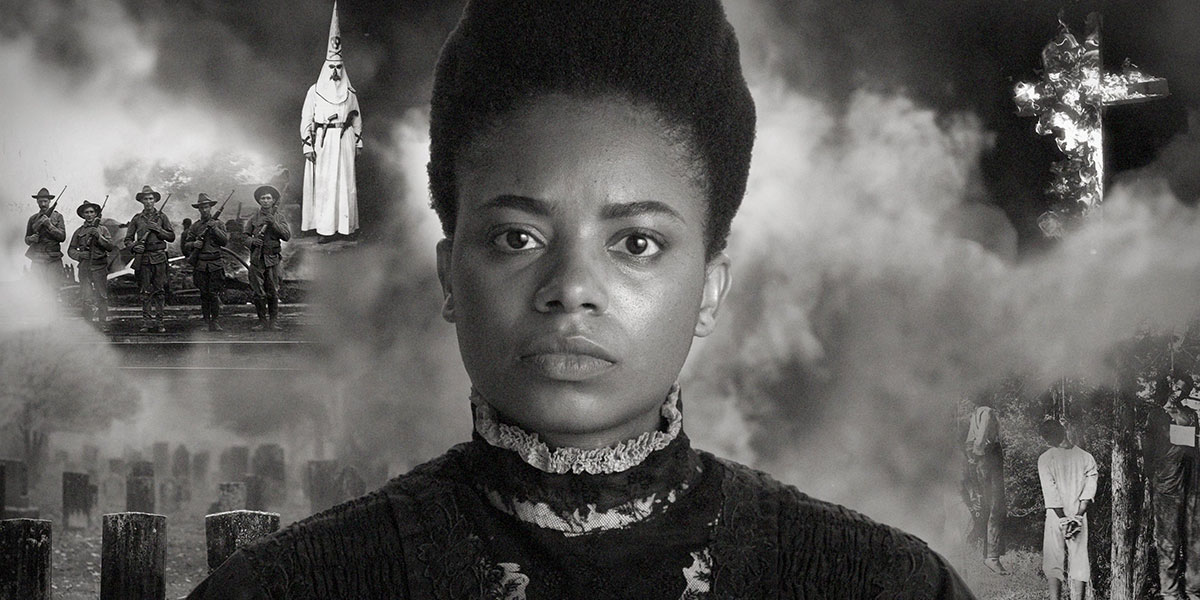
TIFF Review: Stamped From the Beginning Emboldens American History with Black Feminist Perspectives
If your education was only gleaned from the American public school system, Martin Luther King Jr., Malcolm X, and Rosa Parks may be the only Black historical figures you know. The limited overview of the Civil Rights movement and slavery is at stake when schools, government, and other authoritative bodies whitewash dark annals of the country’s foundation in today’s direction of banning the passage of the past to future generations. Yet Academy Award winner Roger Ross Williams inhibits America’s violent chapters, taboo portions, and past Presidents from being forgotten in his newest film, Stamped From the Beginning.
His adaptation of scholar Ibram X. Kendi’s book of the same name observes how America imbued concept of race from the 1500s to the present. He deploys a vast archive of past media (including snippets of Omar Little and Officer Alonso Harris reinforcing the criminalization of Black people) that degraded Black people, expanding American history by highlighting it with contributions from Black women: herein are expert interviews from scholars such as Dr. Racquel Gates, Dr. Carol Anderson, and Dr. Imani Perry, who provide commentary on America’s evolution and painting-like and rotoscope animation.
Stamped’s animated sequences capture the minutiae of older times, where the drawing embedded the period-appropriate wardrobe and architecture. This decision is not just to visualize events before a camera’s existence; it also conceals the brutal anti-Black assaults where we attest to enough of the actual event without displaying extensive trauma or the final killings themselves. The main chapters that glue the periods are the lives of author Phillis Wheatley, abolitionist Harriet Jacobs, and journalist Ida B. Wells. Williams and Kendi’s honor their achievements amid their endurance from the system. Their guidance allows people to find new inspirations and keep Black women in America’s heartbeat. It captivates the presence of “the most disrespected person in America,” echoing Malcolm X’s famous advocacy for Black women and their societal contributions.
Though each scene elevates after another, it is not surprising to witness how hate is woven from the historical to the personal when people spew prejudice over a group of people. It works as a cohesive film, but the etymology of systemic and inpidual racism does not surprise a person with an average knowledge of how race functions. They know what they would expect coming into it. However, it is not a derivative of such works as Marlon Riggs’ Color Adjustment (1991) or Ethnic Notions (1986) on studying race; its seamless stitching of animations and interviews with charismatic voiceover performances from Alexa Jennings (as Jacobs) and Rafa Marinho (Gomes De Zurara, a conceiver of whiteness) prevent it from suggesting a lecture. Though it is impossible for a movie to change the world, it can make one expose their biases and ponder their behavior.
Unlike most racism-occupied documentaries that often conclude on a dark note, Williams uplifts his end with an honest, enlightened meaning of unity and an anti-racist society. There’s so much improvement and hope for a better nation. It is not a harmonic kumbaya where people hold hands. In doing so, we do not have to concentrate solely on the nasty side of history and look for the simple things that make people fight for equality while foregrounding the leadership and agency of Black people. Stamped is an inspection of America’s social hierarchies and its ongoing pisions.
Stamped From the Beginning made its world premiere at the 2023 Toronto International Film Festival and arrives on Netflix on November 15.
Grade: B












































![iFi's GO Bar Kensei Dongle DAC Supports K2HD Technology With Some Samurai Swagger [Updated] iFi's GO Bar Kensei Dongle DAC Supports K2HD Technology With Some Samurai Swagger [Updated]](https://i0.wp.com/cdn.ecoustics.com/db0/wblob/17BA35E873D594/33FF/45A11/QTXOLJR4xDKSNMMk2WlTgjaIlvSgcYpeU1xJzUwIoYs/ifi-go-bar-kensei.jpg?w=768&ssl=1)

























